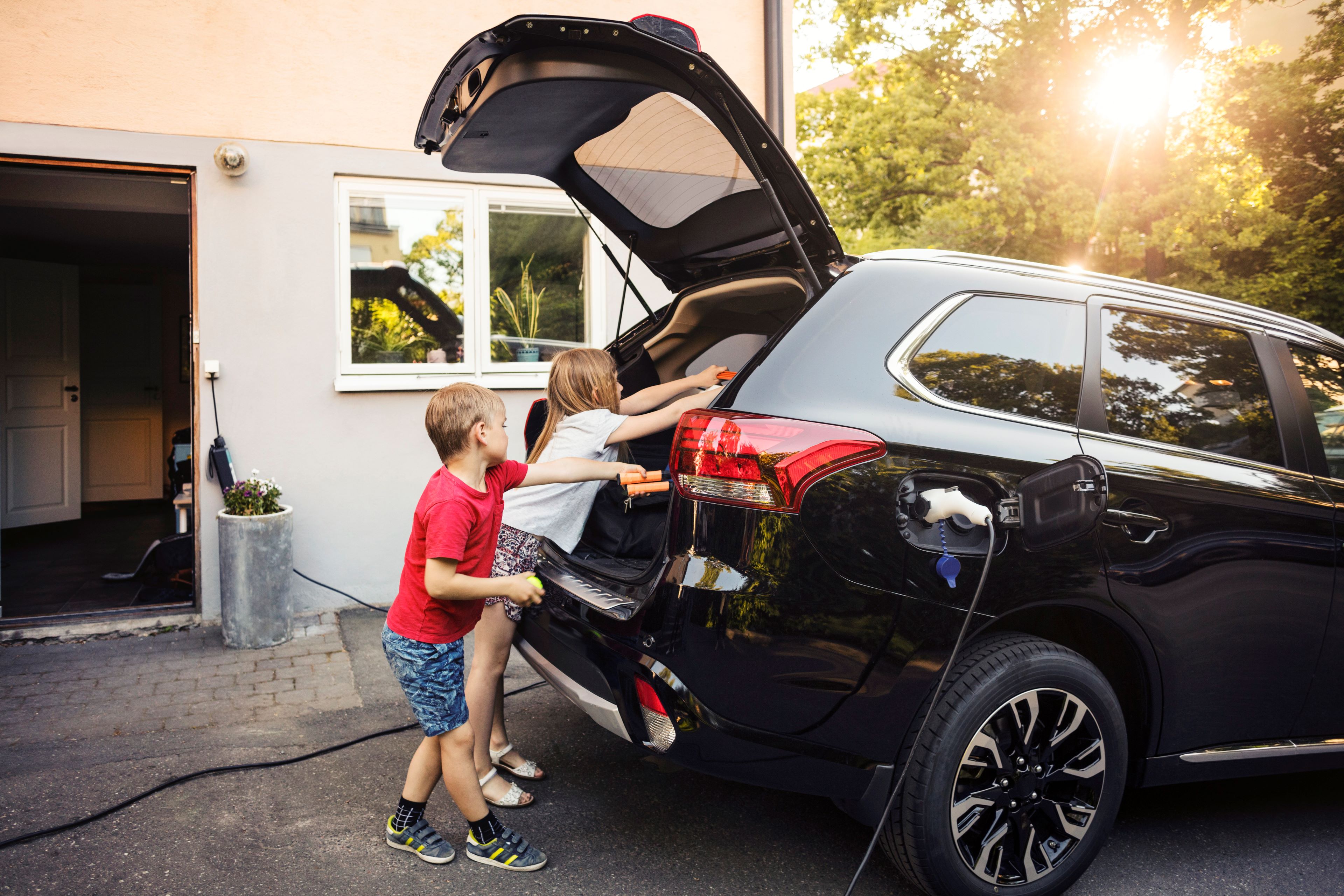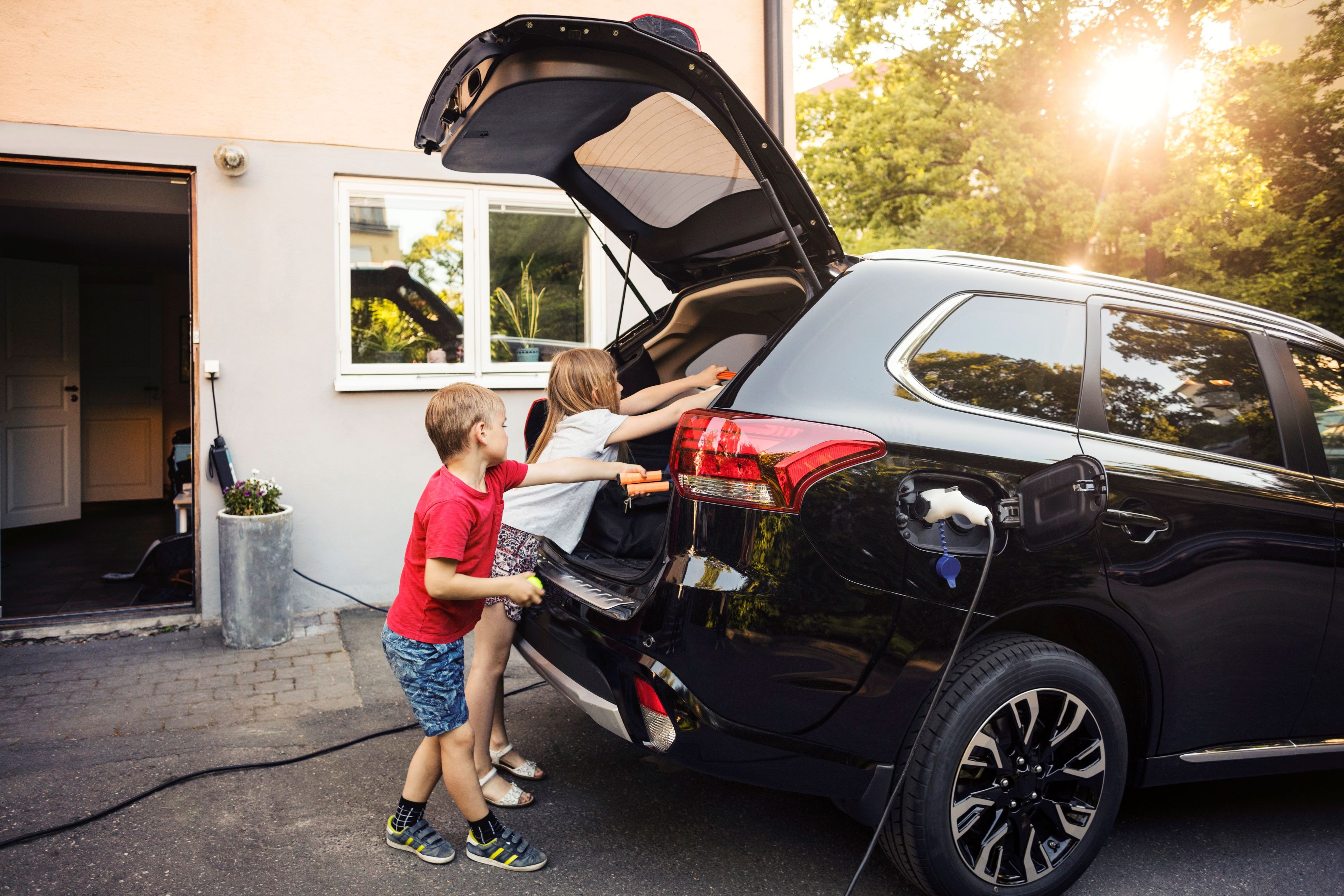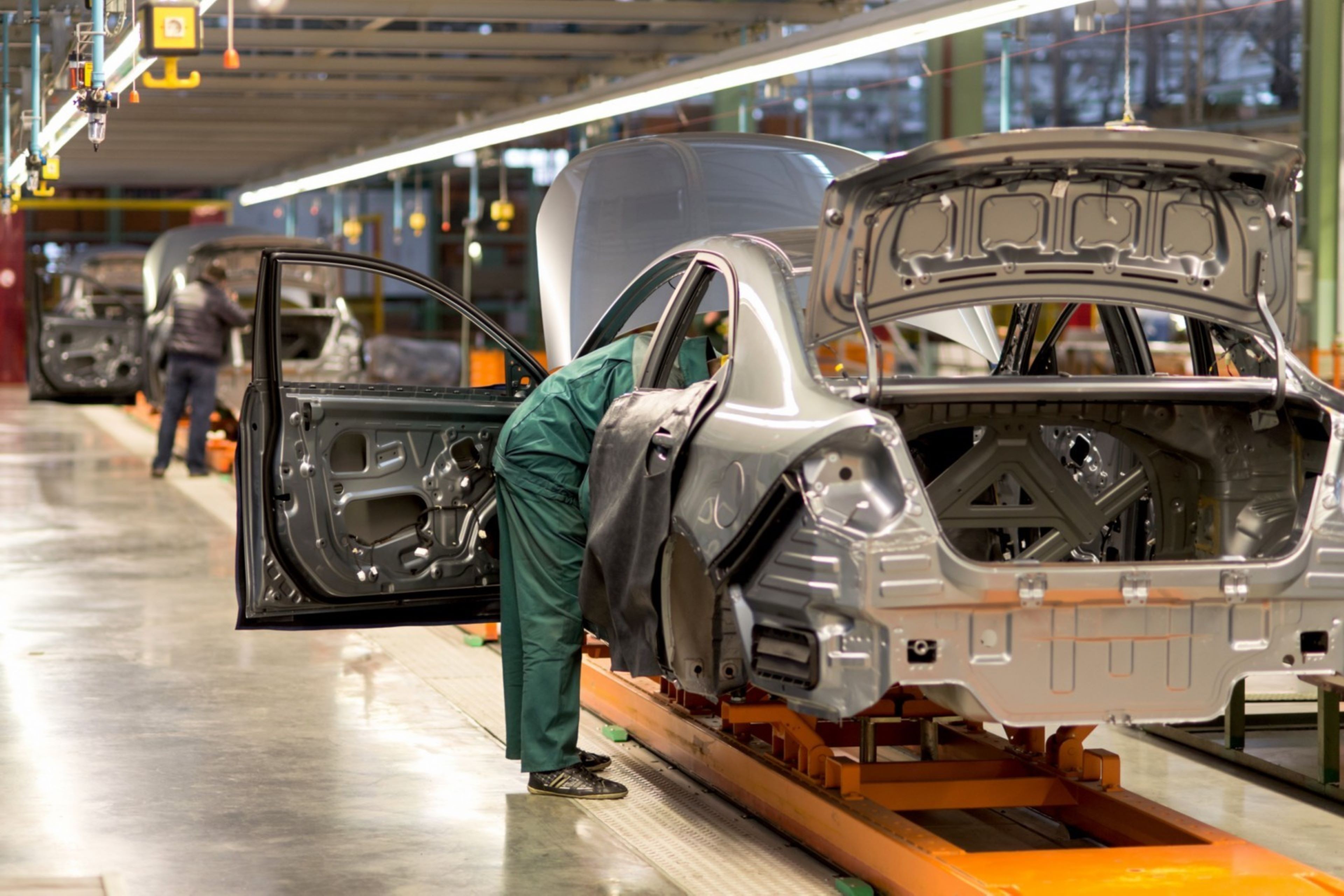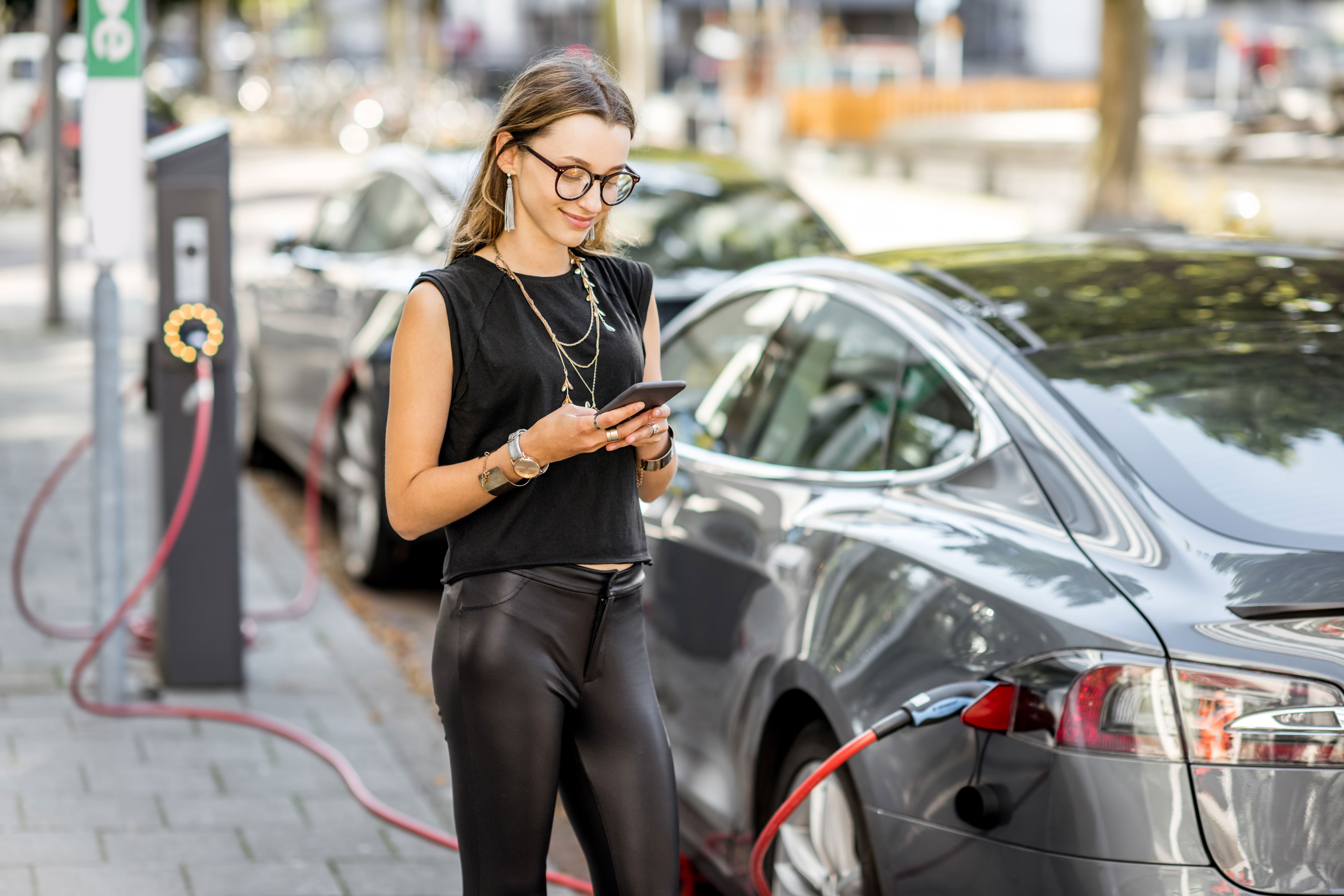EY refers to the global organization, and may refer to one or more, of the member firms of Ernst & Young Global Limited, each of which is a separate legal entity. Ernst & Young Global Limited, a UK company limited by guarantee, does not provide services to clients.
UK’s EV success hinges on six essentials as growing demand highlights infrastructure gaps
- Battery Electric Vehicles (BEVs) and Plug-in Hybrid Electric Vehicles (PHEVs) expected to account for 93% of total UK vehicle sales by 2030, but lack of collaboration could hinder adoption and decarbonization goals
- 72% of UK vehicles expected to be EVs by 2030, amplifying need for accessible and equitable charging infrastructure
- Utilities play a pivotal role in enabling a smooth transition to eMobility
By 2030, there are expected to be 2.5m annual sales of Battery Electric Vehicles (BEVs) and Plug-in Hybrid Electric Vehicles (PHEVs), making up 93% of the UK’s total vehicle sales, according to a new study by EY and Eurelectric.
The study also says that there are expected to be 33.4m EVs in the UK by 2040, which will equate to 72% of the nation’s vehicles. This highlights the need for the development of charging infrastructure and supply chains to be both accelerated and optimised in the coming years.
The study highlights the importance of key players from across the eMobility ecosystem collaborating on six essentials for mainstream EV adoption. Its findings are informed by Eurelectric and its members, and the report includes insights drawn from industry leaders across automotive, utilities, fleet management, city planning and charging infrastructure.
Maria Bengtsson, Electric Vehicle lead at EY UK, said
“This study highlights the ongoing challenges to the EV transition around the world, including here in the UK. What’s clear is that collaboration across sectors is absolutely key. The infrastructure challenges facing the UK’s EV transition are significant, but they are contributed to by a range of factors. For example, in order for the roll out of EV chargers to be scaled up, the application process for grid connections has to be smoother and faster, access to key potential sites for chargers has to be easier and, once installed, chargers have to be more reliable. A successful roll out of charging infrastructure is needed to encourage more consumers and corporates to make the transition to electric and keep the UK on track to end the sale of petrol and diesel vehicles in 2030.
“It has been fantastic to have leaders from such a broad range of sectors involved in this study. It really highlights the far-reaching impacts of the EV transition and the importance of all sectors to embrace change.”
According to the EY/Eurelectric study, in 2022, EVs made up just over 20% of vehicle sales in Europe.
Meanwhile, amid the already-growing appetite for EVs in the UK, EY’s latest Mobility Consumer Index highlighted that 38% of UK consumers are leaning towards an EV or a hybrid as their next purchase.
The EY/Eurelectric study calculates that, by 2040, the total number of residential, private and public chargers needed in Europe will top 140 million (88% will be destined for home charging) to service an estimated 239 million EVs. In the UK, a total of 20 million EV chargers are expected to be required by 2040, 88% of which would be required in private homes.
‘Avoiding a modern-day cart-before-horse scenario’
To keep pace with the growing presence of EVs on the UK’s roads, and avoid a scenario where EVs are rolled out quicker than the necessary infrastructure is implemented, the study highlights that collectively, the ecosystem must unite around six essentials across the eMobility value chain, with utilities playing a key role. These include: resilient supply chains and vital raw materials; clean and green power production; accessible charging infrastructure; the integration of EVs with smart grid technology; digital platforms and mobile applications to optimize EV charging; and finding and training the next-generation workforce.
In the UK in particular, this means a growing need for more Original Equipment Manufacturers (OEMs) to be established, along with greater and more versatile supply chains, and the accelerated scaling up of charging infrastructure.
To quickly and equitably roll out charging infrastructure, the study recommends incentivizing, via regulation, installation in the spaces and places where people live and work. Cooperation between network operators and public authorities in preparing for network development, understanding the EV uptake, and assessing infrastructure needs and investments, is also key.
Utilities come to the transition with electric-engineering acumen and deep knowledge of load on distribution and transmission lines. The study says that in the transition to eMobility, utilities must take on a much more customer-facing and technology-dependent role. To be successful, utilities must engage proactively with city planners and continue building out networks that allow renewables, and other forms of distributed assets, to connect to the grid. Furthermore, they must manage new load at the point of charging and pursue new technologies that enable the two-way flow of energy across the system.
Serge Colle, EY Global Energy & Resources Industry Market Leader, said
“Despite economic headwinds and rising energy costs, EV sales are resilient and are continuing to accelerate. Globally we have reached 13% adoption, but if EVs are to enter the mainstream, significant collaboration across the entire value chain is critical. The EY/Eurelectric study identifies six essentials that will make or break the future of eMobility. Failure to get these right could result in missed net-zero targets, unresolved air quality issues, wasted investments, and an extended eMobility transition period.”
Related news
EY’s latest Mobility Consumer Index reveals that Electric Vehicle (EV) buying intent is growing in the UK.
Strong start to 2023 continues for the UK car industry
David Borland, EY UK & Ireland Automotive Leader, and Manu Varghese, comment on SMMT new car registration figures for February 2023.
Challenging year ahead for the UK car industry, despite new year cheer
David Borland, EY UK & Ireland Automotive Leader, and Manu Varghese, comment on SMMT new car registration figures for January 2023.
2022 – A year of continued challenges for UK Automotive
EY comments on challenges which faced the UK Automotive sector in 2022.







